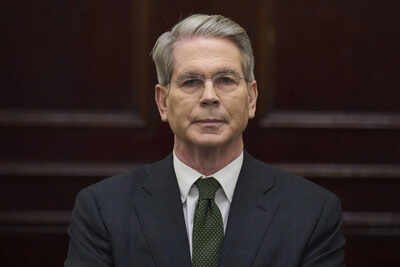Today, I am fully engaged in work commitments and so we have a guest blogger in the guise of Professor Scott Baum, who will soon be joining us at the Centre of Full Employment and Equity (CofFEE) at the University of Newcastle as a senior research fellow. Scott has been one of my regular research colleagues over a long period of time and we currently hold ARC grant funding together to explore regional disparities as a result of the COVID-19 pandemic. Scott indicated that he would like to contribute occasionally and that provides some diversity of voice although the focus remains on advancing our understanding of Modern Monetary Theory (MMT) and its applications. Today he is going to talk about the dilemma facing Australian voters who will go to the polls at next week’s federal election – the so-called Hobson’s choice facing voters all over the world.
As election day draws close, the major parties are failing to pursue a good society
Here in Australia voters will be heading to the polls on Saturday, May 4, 2025 to vote in the federal election.
The leaders of the two main parties—the Australian Labor Party and the Liberal National Party Coalition – are busy running about telling voters that they will be the best placed to lead the country after the election dust settles.
They each have very Trumpish slogans with the Labor party promising to ‘build Australia’s future’, while the coalition promising to ‘get Australia back on track’.
Unfortunately, neither has the ideas or foresight to make the differences the county needs.
The behavior of the two leaders and their off siders follows the usual election playbook.
Promising goodies to various groups, trying to talk up their economic credentials (both dismal) and taking pot shots at each other and the minor parties.
As usual many of the promises are tempered by the disclaimer that spending will be undertaken ‘responsibly’, which as MMTers know is out of touch with the way government spending works.
The problem with the promises is that they are short-term sugar fixes that don’t address the real pressing issues or benefit those most in need.
Investing in a good society
Instead of promising quick attention-grabbing sugar fixes, election promises should be aimed at a grander project.
In this post – What is responsible government spending? (April 4, 2024) – I wrote about the government’s responsibility to strive for a ‘good society’.
In short, governments should be following an agenda that creates the best possible conditions for people to thrive—ethically, socially, politically, and economically.
They used to do this.
In the post war era, governments stepped up in a myriad of ways with government spending having public purpose that supported participation in society.
Conceptually, there was once a strong notion of a social contract.
According to this Op Ed from social scientist Veronica Sheen (May 2, 2014) – The Commission of Audit wants to rip up Australia’s social contract – it is generally considered that this social contract is the:
… the suite of policies, legislation, programs, health care and social services – has served to ensure that every Australian is able to have a basic but decent standard of living.
Like lots of things, these collective society level responsibilities have been gradually worn away and replaced by increasing individual responsibility.
The change is summed up in this Op Ed by Eva Cox (May 6, 2014) – The state of Australia: welfare and inequality – where we read how the:
… implicit social contract has been gradually undermined since then as neoliberal policy models of a minimalist state started to displace more socially driven policy priorities. The decreasing inequality of the post-war welfare state, pushed by the Whitlam government but generally retained by the Fraser government, was replaced, initially slowly, under Hawke but very clearly through the 1990s. The fair go/mateship goal became about individualised competitive opportunities and the focus shifted from social change to economic growth.
Back to the current election campaign and the parties have been busy selling their ideas to the electorate and there is no hint of a social contract.
The UK Guardian’s coverage (April 13, 2025) – Battle of the election ‘sugar hits’: Labor and Coalition announce tax plans at duelling campaign launches – informs us that both parties are offering miniscule income tax cuts and tax offsets that will have little real impact but are dressed up as if they are going to be a big deal for those struggling with day-to-day expenses.
We get housing promises focusing only on sub-sectors of the market.
Young first home buyers are the group that are deserving of the politician’s electoral attention, while others including the growing population of homeless and inadequately housed are somehow undeserving of the politician’s electoral attention.
This article from the Institute of Community Directors Australia (April 1, 2025) – Sector urges pollies to put disadvantaged Australians first during election campaign – makes that clear.
You get the picture.
For regular readers of this blog, we know what works.
Sustainable investments in education, healthcare, climate resilience, social infrastructure—these things pay off.
If we know what makes for a good society — why don’t governments pursue it?
The politicians who want our votes could do better if they chose to.
Unfortunately, they have been brainwashed by neoliberalism and are guided only by ideology.
There is no shortage of commentary about the disaster of neo-liberalism in the public policy setting.
In the introduction to Noam Chomsky’s book Profit Over People: Neoliberalism and Global Order (published in 1999) – Robert McChesney opines that neoliberal democracy is:
A trivial debate over minor issues by parties that basically pursue the same pro-business policies regardless of formal differences and campaign debate.
In David Harvey’s book – A brief History of Neoliberalism (published 2005) – we read that such trivial debate around policy leads to:
… much ‘creative destruction’, not only of prior institutional frameworks and powers but also of divisions of labour, social relations, welfare provisions, technological mixes, ways of life and thought, reproductive activities, attachments to the land and habits of the heart.
So the exact opposite of what the major parties are promising to do— build Australia’s future and get Australia back on track.
The problem for our politicians is that like Margaret Thatcher they truly believe there is no alternative.
But we know there is an alternative.
Bad ideology doesn’t have to drive political decisions.
We saw during the COVID-19 pandemic that politicians were willing to leave their ideology behind and do things that made a difference.
At the time I wrote in this post – Alas, the window seems to be closing (March 9, 2021) – that
The events of 2020 have called for governments to step away, at least in some ways, from their business-as-usual approach understood in terms of neo-liberal frameworks of small governments, free markets and orthodox economics.
Politicians of all persuasions have readily admitted that the events of the past year have meant that they have had to look for guidance in different places.
To those observing from the sidelines in Australia, the Federal Government’s multi-billion-dollar rescue package is a far cry from earlier times when governments have been obsessed with reducing public spending to ‘bring the budget back into balance’.
At that same time, the UK Guardian article (April 4, 2020) – Australia can be a better, fairer place after the coronavirus, if we’re willing to fight for it – noted that:
… watching the Morrison government’s extraordinary transformation… it might seem they have abandoned every economic principle they once held sacred.
Bill also commented on this in his blog post – We need the state to bail out the entire nation (March 26, 2020) – where he noted:
We are now hearing conservatives, who previously made careers out of claims that government deficits would send nations broke and more, appearing in the media now claiming “We need the state to bail out the entire nation.”
The take home message from COVID-19 was that politicians can change their stripes.
We need to imagine what is possible
So, the issue isn’t a lack of ideas.
It’s a question of power, perception, and political will.
To truly shift course, we need more than new policies — we need to re-imagine what’s possible.
A lot of what the parties should be promising aligns with the work Bill, I and others started discussing just prior to the COVID-19 pandemic.
We talked about the need for a Just, Urgent and Sustainable Transition.
The big grand policies/election promises should focus on transforming Australian society and economy.
A Just, Urgent and Sustainable Transition election platform would include:
1. Ensuring all Australians have access to essentials without market barriers via the provision of universal basic services including:
- Universal Healthcare + Dental + Mental Health
- Free Public Childcare
- Free vocational (TAFE) and University education for all
2. Ending involuntary unemployment via the introduction of a – Federal Job Guarantee – which provides a living wage and associated employment benefits.
Job Guarantee employment would involve work in areas such as land care, aged care, education support, and urban agriculture, with jobs created locally based on community needs.
3. Decarbonising the economy and build climate resilience via policies including:
- The development of a Public Clean Energy Authority focusing on widespread adoption of renewables via publicly owned wind, solar, hydro, battery storage.
- A Mass Transit Buildout focusing on electrified high-speed rail between cities and the uptake of sustainable public transport options in cities and regions.
- The development of Public Green Housing focusing on net-zero homes with passive design.
- The development of Climate Resilience Works including flood defences, urban cooling, and fire mitigation infrastructure.
4. Renationalising essential services (airlines, banks) to ensure that national interests are front and centre of decision-making processes rather than narrow private profit interests.
5. Reorienting government processes to put society at the forefront-The economy must work for society, not the other way around. This would involve rethinking the notion of federal government fiscal statements (aka the Budget) and instead, introducing an social/ecological budget prioritising human well-being, equity, and ecological health over GDP.
These ideas would begin the transition to a better, fairer and sustainable society.
Conclusion
The usual naysayers would carry on about how the government would pay for these election promises or how the market does things so much more efficiently, blah, blah, blah.
Going back to David Harvey (see citation above) – these views sadly reflect the way that:
Neoliberalism has…become hegemonic as a mode of discourse. It has pervasive effects on ways of thought to the point where it has become incorporated into the common-sense way many of us interpret, live in, and understand the world.
Until these views cease to be in the mainstream, it is difficult to see how our society will progress to be a better vision of itself.
That is enough for today!
(c) Copyright 2025 William Mitchell. All Rights Reserved.







Leave a Reply